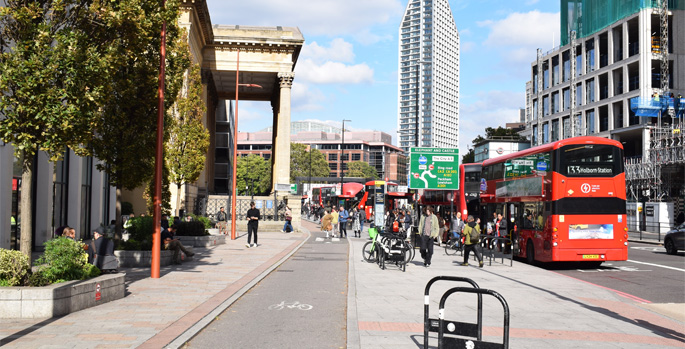The roll-out of floating bus stops has been halted by the Government as it responds to campaigns surrounding pedestrian safety.
The Government has ordered an immediate suspension of bus stops where pedestrians board and disembark directly from or to a cycle lane.
The pause was announced by Simon Lightwood, the local transport minister, in a statement to MPs on 26 June, with the minister referring to them as ‘problematic’ to people with visual impairments.
The main concern highlighted by campaigners is that the floating stops force pedestrians – particularly vulnerable pedestrians or those with disabilities – to avoid cyclists using the bike lanes between the stops and the pavement.
A UCL study commissioned by the charity The Guide Dogs for the Blind Association showed that guide dogs avoid using floating bus stops due to meeting cyclists travelling at speed.
El Briggs, head of policy, public affairs and campaigns at The Guide Dogs for the Blind Association, said: ‘Our research has shown the significant fear, anxiety and distress caused by bus stop boarders for disabled people.
‘Our research shows bus stop boarders are confusing, difficult to detect, and can create frightening near-misses with cyclists. No one should have to risk stepping into harm’s way just to board or leave a bus.’
Sarah Gayton, of the National Federation of the Blind UK, also commented: ‘All types of floating bus stops are not safe or accessible for blind people, as well as all bus passengers.
‘Guidance will not resolve this design flaw. The only solution is for the bus to pull up to the pavement curb where passengers can board and alight without crossing any cycle lane.
‘We want cyclists to be safe, but not at the expense of the most vulnerable people; pedestrians, but particularly blind and disabled pedestrians.’
Image credit: Jun Huang / Shutterstock.com






